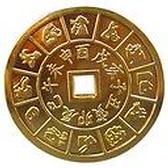Chinese astrology is based on traditional astronomy and the lunisolar calendar, which incorporates elements of a lunar calendar and those of a solar calendar. According to Chinese astrology, an individual’s destiny can be determined by the positioning of the major planets at the time of a person's birth, along with the positions of the Sun, Moon and comets, as well as their Zodiac Sign. Chinese astrology and Chinese philosophy are both closely connected. Much of Chinese philosophy is built upon the belief in the five elements and their abilities to interact with and build relationships with natural | 
|
phenomena. The five elements are wood, fire, Earth, metal and water , and are all associated with five major planets in the Solar System, which are; Jupiter, Mars, Saturn, Venus and Mercury. The five elements of the Chinese Zodiac are also correlated with direction, colour, season, body parts, tastes, and senses; for example, wood correlates to the direction.
Interestingly, not many people outside the Asian world understand the importance of the five elements, especially how each relates to the workings of the Chinese Zodiac. To explore the Chinese Zodiac further, it is important to note that it’s represented by 12 animals, symbolizing the 12 earthly branches which were created to record years and people's attributes. These included; the rat, ox, tiger, rabbit, dragon, snake, horse, sheep, monkey, rooster, dog and pig. The Chinese Zodiac Signs are based on a Lunar year in the Chinese calendar, and act as additional parts to Chinese astrology. They are derived from the observation of the 12-year period that it requires for the planet Jupiter to complete its orbit. |